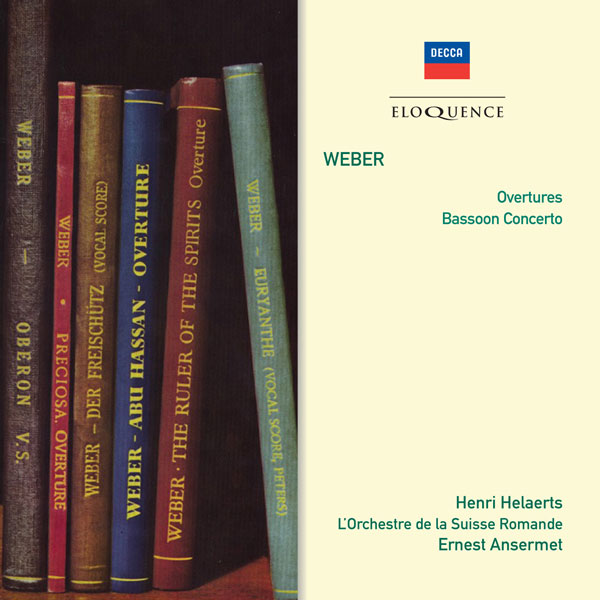
The Decca Ansermet Legacy on Eloquence continues to garner the highest plaudits from publications all around the world. And the latest batch presents the maestro’s recordings of four key Austro-German Romantics: Schubert, Weber, Mendelssohn and Schumann, bringing together all of Ansermet’s Weber recordings for Decca.
Weber’s overtures possess an irresistible panache, being a perfect blend of popular and more highbrow styles. If his operas have proved largely unstageable, their overtures have maintained enduring popularity in the romantic orchestral repertoire. In fact, few were better equipped to distil the emotional and atmospheric essence of romantic lyric drama in terms of the orchestral overture than Weber. As Edward Dent once intimated, Weber never quite overcame a tendency to trump his vocal aces with an orchestral court card. But in the overtures he is the complete master. In them he spun poetic and intensely imaginative summaries of their ensuing dramas.
The British LP issue of the overtures omitted the ‘Jubel’ (Jubilee) Overture, here restored to circulation on its CD reissue. The coupling, the composer’s Bassoon Concerto, features Henri Helaerts (1907-2001), the principal bassoonist of this orchestra for nearly fifty years. Helaerts was a very popular figure in Geneva, where he founded and conducted Les Cadets de Genève, a musical group comprised of generations of wind instrumentalists. He was one of the principal representatives of the French bassoon with its very characteristic sonority, sadly disappearing today.
CARL MARIA VON WEBER
Overtutres
Der Freischtütz
Preciosa
The Ruler of the Spirits
Oberon
Euryanthe
Abu Hassan
Jubel
Bassoon Concerto in F major, Op. 75
Henri Helaerts, bassoon
L’Orchestre de la Suisse Romande
Ernest Ansertnet
‘Ansermet is always successful with Weber’s allegros by reason of his orchestra’s lively playing and his own sense of buoyant rhythm… sheer pleasure, especially the sense of enjoyment in the playing of Preciosa and the remarkably deft performance of Abu Hassan, a piece notoriously difficult to play really cleanly’ Gramophone
